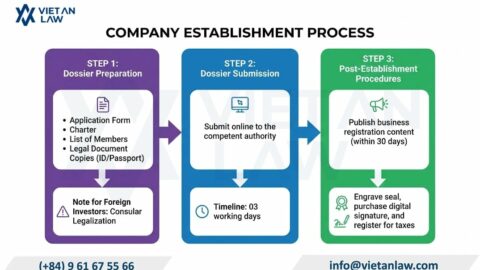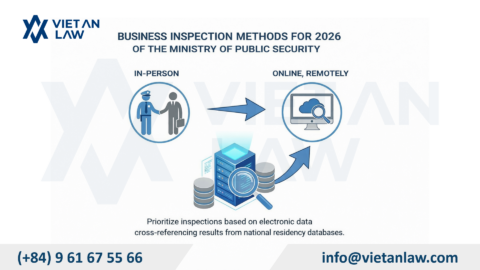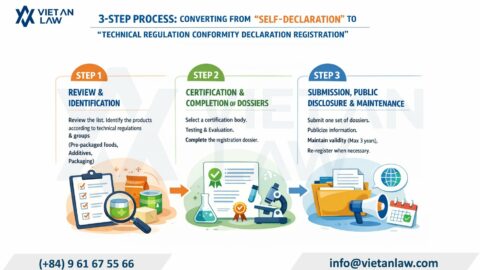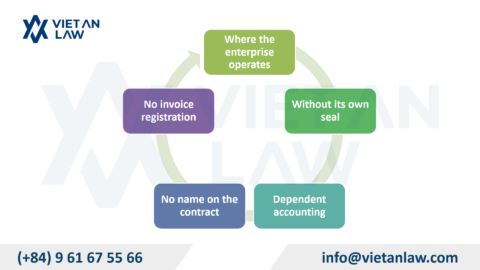The Land Law is one of the important legal documents, of great significance in the management and use of a country’s land. To meet the country’s development requirements in the new period, the Land Law 2024 was enacted, contributing to creating a transparent, fair, and effective land market, while ensuring legal rights of land users. So, what are the new features of the Vietnam Land Law 2024? Let’s find out with Viet An Law Firm in the article below.
After more than 8 years of implementation, the 2013 Land Law has achieved important results, making an important contribution to the country’s socio-economic development, national defense, and security. However, besides the achieved results, the Land Law 2013 also revealed several shortcomings and limitations, specifically:
These shortcomings and limitations have affected the effectiveness of land management and use, causing difficulties for the country’s socio-economic development, national defense, and security.
In the context that Vietnam is entering a new stage of development, with higher requirements for land use efficiency to serve socio-economic development and ensure national defense and security, the promulgation of the Law Land in 2024 is extremely urgent. The promulgation of the Land Law 2024 will create a legal basis for the most economical, sustainable, and effective management, exploitation, and use of land resources and resources; meet the requirements of promoting industrialization, modernization, fairness, and social stability; ensure national defense and security; create motivation for the output country to become a developed country with high income.
Therefore, the promulgation of the Land Law 2024 to satisfy the above reasons is extremely necessary and urgent to improve the efficiency of land management and use, meeting the requirements of socio-economic development, national defense, and security, and contributing to building a developed country with high income.
The Land Law 2024 regulates this issue in Chapter V, the regulations here are completed in the direction of innovating the process, content, and methods of planning and land use plans, enhancing publicity and transparency. Specifically, citizen are asked for their opinions on land use planning.
Furthermore, national plans as well as land use plans and plans for sectors and fields with land use ensure appropriateness, unity, synchronization, and close connection to promote each other for development.
Along with that, regulations on the exercise of land users’ rights in planning areas have been supplemented and completed, according to which land use planning has been announced but there is no permanent land use plan. At the district level, land users can continue to use and exercise the rights of land users. Decentralize localities in determining planning targets so that localities can proactively develop their socio-economic development.
In general, innovations in planning and land use plans are the foundation for effective exploitation and use of land, contributing to socio-economic development, and making our country a developed country with high income.
Pursuant to Clause 3, Article 138 of the Land Law 2024, households and individuals using land from October 15, 1993 – before July 1, 2014, do not have documents on land use rights without violating the land law, other than cases where land is allocated without proper authority, will be issued a Land Use Rights Certificates if it is confirmed by the Commune People’s Committee where the land is located that there is no dispute.
Meanwhile, Article 101 of the Land Law 2013 previously stipulated that households and individuals using land without land use rights documents will be granted land use rights certificates in 02 cases:
It can be seen that, according to the Land Law 2013, depending on the timeline of land use without documents before July 1, 2004, or before July 1, 2014, households and individuals must meet the corresponding conditions. only as stated above will be granted a Land Use Rights Certificate.
Now, the Land Law 2024 has loosened conditions and added time to issue Land Use Rights Certificates for land without legal documents. Now, land users only need to determine a timeline before July 1, 2014, and be confirmed by the Commune People’s Committee where the land is located that there is no dispute, then a Land Use Rights Certificate will be granted.
The Land Law 2024 specifically stipulates cases where the State recovers land for national defense, security, and socio-economic development purposes for national and public interests. These regulations inherent regulations consistent with current practice, while also amending and supplementing several key issues as follows:
The Land Law 2024 specifically stipulates 31 cases in which the State recovers land for socio-economic development for national and public benefits. These cases have covered the country’s development needs in the new era. The law also specifically stipulates the order and procedures for land recovery, to ensure democracy, objectivity, fairness, openness, and transparency.
Regarding land transfer, land lease, and change of land use purpose, Land Law 2024 has detailed cases of land allocation without auction or bidding process. At the same time, the law also clearly stipulates situations where it is necessary to conduct auctions of land use rights or bidding to select investors to carry out projects related to land use.
Regarding authority related to changing the purpose of land use for rice cultivation, protective forest land, special-use forest land, and production forest land as natural forests, the entire authority is decentralized and approved, and this right belongs to the Provincial People’s Council.
Regarding land policies applicable to ethnic minority communities, Land Law 2024 has included several new regulations after a process of research and supplementation. Article 16 of this law specifies policies to ensure land for community activities, including land allocation and land lease to ethnic minorities who are having difficulty finding residential and productive land. The law also commits to ensuring land funds to implement land policies for this community.
In Article 166 of the Land Law 2024, there is a strong strengthening of decentralization and decentralization in exercising the right to represent land owners of the entire people. The law emphasizes unity in management while focusing on strengthening local responsibility. This is combined with strict inspection, supervision, and control from the Central Government.
The law also sets the goal of reducing focal points and intermediaries in land allocation and land leasing activities, especially in economic zones, high-tech zones, and airports. This is aimed at closely integrating with the administrative reform process, reducing hassles, and creating a more positive environment in land management.
Pursuant to Article 252 of the Land Law 2024, this Law takes effect from January 1, 2025, leading to the effect of a series of new laws in the field of real estate such as the Law on Real Estate Business 2023, Housing Law 2023, which Viet An Luat has related articles. However, for Article 190 regulating sea reclamation activities and Article 248 amending and supplementing several articles of the Law on Forestry No. 16/2017/QH14, several articles have been amended and supplemented according to Law No. 16/QH14. 2023/QH15 of this Law will take effect sooner, specifically from April 1, 2024.
The Land Law 2013 (as amended and supplemented in 2018) expires from the effective date of the Land Law 2024.
Clients who need advice on regulations on new features of the Vietnam Land Law 2024, real estate business law, housing law, enterprise law, and related amended decrees, please contact the Viet An Law Firm for the best support.




